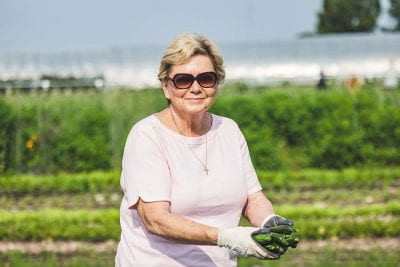
Waltina was born and raised in Bakersfield, California. She and her husband, Will thought they would always live there, but the desire to be near grandkids brought them to Arkansas. After working for thirty years in the welfare department, and her husband as a firefighter, they retired early. With that freedom came the question of what to do with their next 50 years as they found themselves in a new phase of life. Their parents had passed away. They were still physically active and ready for a new adventure. So, in 2006 they moved to Arkansas, where Will returned to work as the Benton County Fire Marshal.
Initially, they lived on an acre lot in Centerton and Will was the first to develop an interest in farming. He encouraged Waltina to watch documentaries about agriculture such as Farmagedon and Food Inc. At the time, she was a self-described “fast food queen” who “thought steaks grew in Styrofoam trays,” she says with a laugh.
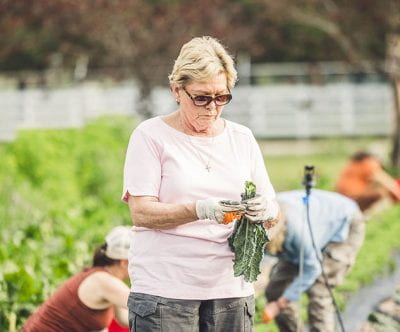 As Waltina’s interest in farming grew, so did her concerns about the quality of food available for her grandchildren and their future food security. Soon she and Will wanted more control over their options. They started out wanting a pig to raise for food, and in a blink, found themselves buying thirty-five acres and even more pigs! They started selling humanely raised pork to local Farm-to-table restaurants. The chefs wanted to see their operation to ensure the stock was raised humanely. After noticing sheep grazing on their land, one chef mentioned a need for lamb in the area. Soon lambs became the primary offering in their burgeoning operation, and business grew.
As Waltina’s interest in farming grew, so did her concerns about the quality of food available for her grandchildren and their future food security. Soon she and Will wanted more control over their options. They started out wanting a pig to raise for food, and in a blink, found themselves buying thirty-five acres and even more pigs! They started selling humanely raised pork to local Farm-to-table restaurants. The chefs wanted to see their operation to ensure the stock was raised humanely. After noticing sheep grazing on their land, one chef mentioned a need for lamb in the area. Soon lambs became the primary offering in their burgeoning operation, and business grew.
After receiving some expansion grants for fencing and waterers they learned about additional grants available for high tunnels, which they applied for and received. But, adding vegetables to their operation would require some education, so Waltina began looking for farm training programs and discovered the CAFF Farm School. As a woman-owned business with one employee (her husband Will), the decision was made that she would attend school and learn to grow crops while he tended the livestock. So, at age 70, Waltina enrolled, unsure what she was getting into.
“I feel so smart now,” she says, citing how much she has learned in the program in such a short time. “It took years to learn about the animals, but our knowledge of growing vegetables and expanding the business has been fast-tracked. The CAFF Farm School is teaching me in months what would have taken years to learn alone. It’s saving so much time and I’m avoiding so many mistakes.” Everything learned at the teaching farm is shared with Will, who puts it into practice on their farm.
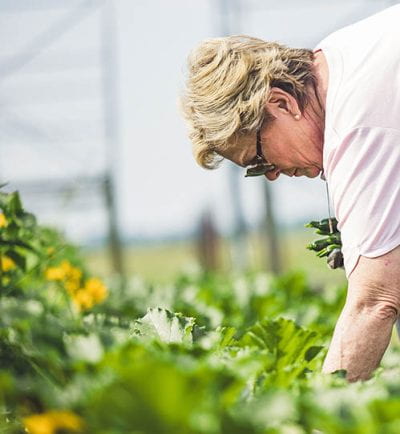 Waltina says Her family can’t believe she is doing this and is so happy with it. “When we initially thought about adding vegetable production and applied for that hoop house grant, it was just a fantasy. I didn’t know what to do if we got it. I didn’t even know when the planting seasons were. Now we have the knowledge and skills to expand the farm. The CAFF Farm School is making that pie in the sky a reality.”
Waltina says Her family can’t believe she is doing this and is so happy with it. “When we initially thought about adding vegetable production and applied for that hoop house grant, it was just a fantasy. I didn’t know what to do if we got it. I didn’t even know when the planting seasons were. Now we have the knowledge and skills to expand the farm. The CAFF Farm School is making that pie in the sky a reality.”
Waltina is impressed with her fellow students in the class and the cohort’s camaraderie, “We’re like-minded and enjoy learning and working together. Most of us started this program knowing less than zero, and we are amazed at what we’ve learned,” she says. “I think the CAFF Farm School is well organized. The instructors are patient with our questions,” she adds, saying that she’s the business segments of the program have been especially helpful. “Now, I can’t imagine trying to start vegetable production for profit without crop planning,” which she didn’t even consider before.
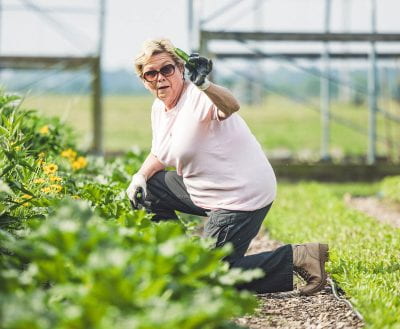 Having an active farm to put what’s learned into immediate practice has provided her with a unique perspective. “The instructors have provided advice and guidance all along the way, and they’ve been so helpful. For example, they told me not to buy equipment until trying all the school’s tools. Try it before you buy it!” It’s helped her determine which tools she needs on her farm and save money. “They also told me to plant a small practice crop first because it’s always a learning experience.”
Having an active farm to put what’s learned into immediate practice has provided her with a unique perspective. “The instructors have provided advice and guidance all along the way, and they’ve been so helpful. For example, they told me not to buy equipment until trying all the school’s tools. Try it before you buy it!” It’s helped her determine which tools she needs on her farm and save money. “They also told me to plant a small practice crop first because it’s always a learning experience.”
When asked about the challenges of starting the program at an advanced age, Waltina admits to her initial reservations. “I was originally concerned about it, but I’ve been pleasantly surprised. Farming is physical. That’s a fact. But, not as much as I thought because there are so many more innovative ways to do it besides brute force. A different tool can make all the difference.” Waltina shares about a time when she was struggling with a tool, and one of the female farm instructors demonstrated the correct method for using it that made all the difference, then adds “There are cool farm tools available now, that make the work easier.”
Waltina and Will are committed to being responsible stewards of their land, which is near Bentonville. They currently have 40 breeding ewes and usually 20-40 animals for the market. Her passion for raising them humanely is evident. Waltina expresses thankfulness for already having connections in place with area chefs. Growing vegetables was the natural next step. The plan is to grow a vegetable bed for each of the chefs, with items they specifically request. She also plans to grow for wholesale markets and seek additional restaurants.
“I need to stop letting my husband watch documentaries,” she laughs, “now we have bees!” Someone offered them a hive and they added a pollinator garden to the property. Despite her jokes about their ever-expanding farm, it’s obvious that she finds purpose and reward in this farm journey they are on. ”There’s a sense of freedom in being able to grow quality food for yourself and also feed the community,” she says. “We enjoy providing for our family, friends, and charity.” The farm is next to the children’s shelter. When Waltina learned the kids didn’t have fresh vegetables and fruit since the pandemic due to the increased cost, she added a bed for them to her farm plan.
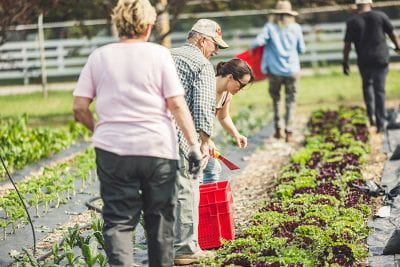 When asked what advice she could offer anyone considering farming, Waltine emphatically recommends attending the CAFF Farm School saying “It gives you the knowledge and skills needed to make that dream a reality. I’m glad we are doing it at this age to show the younger generation that it can be done. If we can do it, they can too. Farm school has given me the confidence, knowledge, and skills needed. I feel competent and know that I can do this now. It’s exciting!”
When asked what advice she could offer anyone considering farming, Waltine emphatically recommends attending the CAFF Farm School saying “It gives you the knowledge and skills needed to make that dream a reality. I’m glad we are doing it at this age to show the younger generation that it can be done. If we can do it, they can too. Farm school has given me the confidence, knowledge, and skills needed. I feel competent and know that I can do this now. It’s exciting!”
Applications for CAFF Farm School 2024 are open from July 1, 2023, to August 30, 2023. Learn more about all of the programs and courses at LearnToFarm.org.

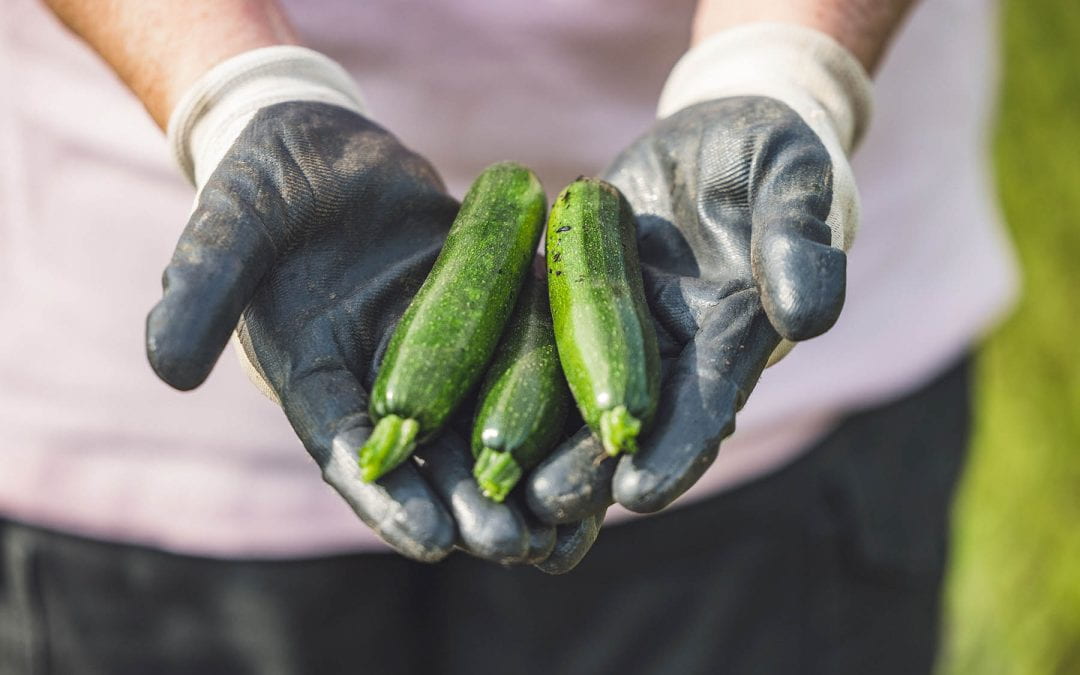
Recent Comments